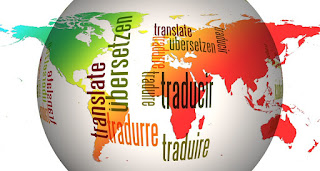Most Popular Languages
Treading into the global market is challenging enough without all the linguistic hurdles that you may come across. Not everyone in the world speaks your native language and reaching out to an audience wider than your own requires a multi-factorial setup; one of which is a translation service.
Language translation agencies will help you translate your content from just about any language in the world to the one that your audience speaks. Here’s a list of the languages that are the most popular among language translation agencies, and one that will help you narrow down all the overwhelming language choices you have.
1. Simplified Chinese and Mandarin
Not only is China the second largest market on Earth but a quarter of the internet users all over the world speak, understand and communicate in Chinese. China also has a huge footprint in the e-commerce industry as well, but most of the speakers do not speak English – which is why this language makes it at the top of our list.
2. Spanish
Perhaps the most spoken language after English is Spanish, and treading into this market offers immense global business opportunities. With Spanish translations, you are talking to people in Europe, Latin America, Spain, Mexico, Argentina, Columbia, Chile, and even Peru.
3. Portuguese (Brazilian)
It is expected that by the year 2021, the e-commerce industry will be populated by Brazilians up to 60%. Translating your content into Portuguese is an investment at this point.
4. Arabic
Did you know that the Arabic e-commerce industry is expected to reach a net worth of $20 billion by the year 2020? The Arabic market is booming, and you can see that Arabs absolutely love it. A major portion (30 countries) of the Earth speak this language, and it would be foolish to ignore it.
5. Russian
Translating to and from Russian means communicating not just with people of Russia but Belarus, Kazakhstan and Kyrgyzstan, Estonia, Latvia, Lithuania, Moldova, Ukraine, Armenia, Bulgaria, Finland, and even Georgia as well.
Difference between Translation and Localization
If you know a thing or two about the global market, you will probably understand that translations alone are simply not enough; the message needs to be localized as well. One linguistically unacceptable word in a different style or tone than what would work for that region and your business will suffer direly.
|
Translation
|
Localization
|
|
|
Our Translators Belong To Your Targeted Audience!
Our translators are native speakers of the languages whose
translations we offer, so they will automatically localize your content and get
your message heard loud and clear. A team of native translators means that you
do not have to worry about any cultural and grammatical needs or regional
nuances.
Your message will get to your audience exactly as you want
it to.



Comments
Post a Comment